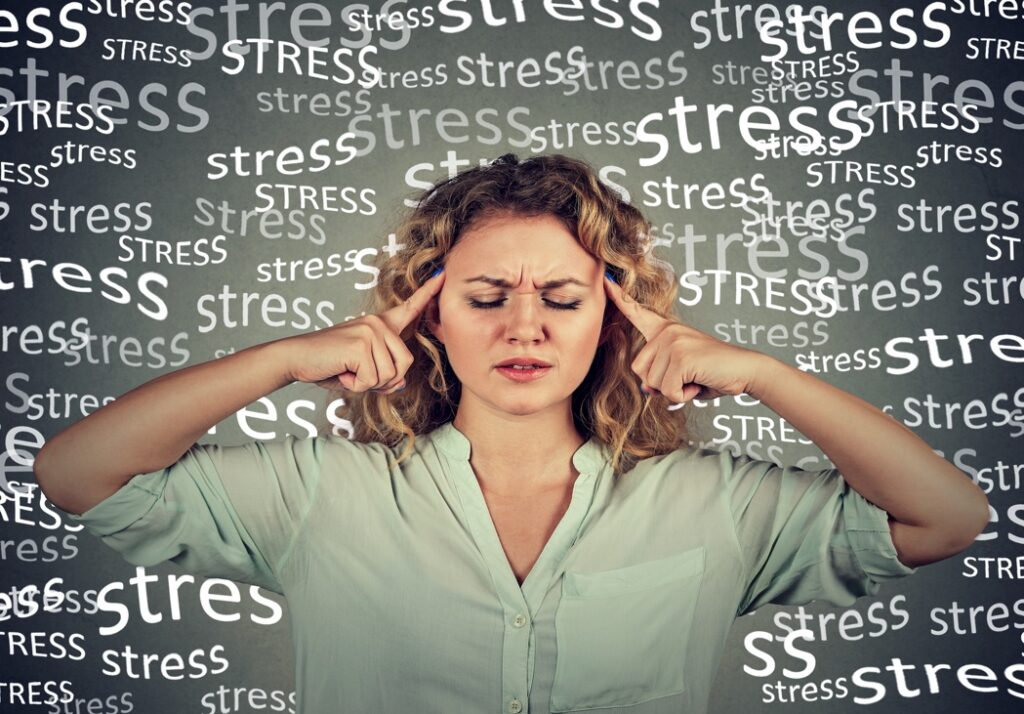Amanda Hipkiss-Torrance
Master NLP Coach, EFT and MRA Practitioner (June 2024)

Does the thought of facing the day leave you feeling overwhelmed, exhausted and close to tears, wishing you could just crawl back into bed and hide away. If that’s a yes, then you could be experiencing burnout and you’re not alone.
In my other life as a Mental Health Nurse I am getting more and more patients coming to me who are either burned out or are likely to be if they don’t do something to manage their stress soon.
To give you some figures; Mental Health UK (2024) recently reported that one in five of the UK workforce needed to take time off due to unmanageable work pressure and stress affecting their mental health. Further, a huge 91% of UK adults experienced high or extreme stress in the past year.
What Exactly is Burnout?
Burnout is feeling completely emotionally, physically, and mentally drained. It’s like your tank is constantly on empty, no matter how much you try to refuel. This isn’t just your average tiredness; it’s a more profound state of exhaustion that can affect every part of your life. To add, this isn’t just a problem for busy professionals, it can affect any one of us at any time.
WHO offers this official definition:
Burn-out is a syndrome conceptualised as resulting from chronic workplace stress that has not been successfully managed. It is characterised by three dimensions:
- feelings of energy depletion or exhaustion
- increased mental distance from one’s job, or feelings of negativism or cynicism related to one’s job, and
- reduced professional efficacy.

WHO states that ‘burnout refers specifically to phenomena in the occupational context and should not be applied to describe experiences in other areas of life’. However, even though burnout is recognised as a workplace problem. It doesn’t stop there, it can impact each and every aspect of our lives from our family and personal relationships to our physical and mental health.
As I will talk about in a moment, Mental Health UK (2024) found a number of the factors relating to burnout were not workspace specific; indicating that burn out could be a combination of work pressures alongside other areas of stress.
What causes Burnout?
There are a number of reasons we are seeing a rise in burnout lately. I’m sure you all remember back in 2020 where life changed dramatically where our work and homelife boundaries became very blurred. Add to this the rise in cost of living, fear of debt and financial strain plus any other pressures such as families or ill health and you have a not so perfect storm. Mental Health UK (2024) explores these eight key areas of stress:

- Money worries
- Working arrangements
- Worries about job security
- Isolation
- Physical Health
- Sleep
- Relationships
- Caring for others
This list in my view is by no means exhaustive. What causes us stress is very individual and doesn’t have to be the big stuff, it could be a combination of seemingly small things that build up over time.
How to Avoid Burnout
So, this is where I ‘could’ list all the things that you can do to avoid burnout. Such as; set boundaries, prioritise self care, create a work life balance, take a break, look for a new job. But let’s be honest, you can find this list anywhere on google.

And although these are all great ideas and would be part of our work together, what google won’t tell you is that if you want to make these changes sustainable you need to get to the route of the problem. Let me explain..
How you might be thinking your way to burnout!
Ok, now, I’m not saying it’s your fault or that you did this to yourself or any of that crap. What I mean is: the way we think determines how we experience life, like a filter. This filter is coloured by our beliefs; the life rules and stories we have learned along the way that can contribute to, if cause us to burnout. Imagine a filter full of negative thoughts, life would probably look pretty dark right?
For example, if your parents never took a day off sick and you saw them going to work even if they were unwell you could create the belief ‘I have to work even if I don’t feel well’. This would cause you to keep working when you are exhausted.
Maybe, if you always believed you weren’t good enough you could be constantly trying to prove your worth by working overtime or trying to please others and putting their needs above yours. Even moreso, I’ve met so many people who are stuck in jobs that make them miserable because of their belief; they aren’t good enough.
Say, mental health was never spoken about in your household and there was a ‘get on with it’ attitude. Therefore, you ignore all the warning signs and power through until eventually you are exhausted.
Or if you were punished every time you made a mistake as a child, you may have decided that you need to be perfect to be liked or accepted. In fact, there is a proven link between perfectionism and burnout (Stoeber and Damian (2015). Robson (2024) also noted that ‘if we have unrealistically high expectations of what we feel we should achieve, and if we judge our work very harshly, then we are much more likely to burnout’.

Now, imagine for a moment a new you looking through a much brighter filter. A you that believes you were worthy, deserves rest and that your mental and physical health mattered. Who would you be now? Where would you be and what are you doing differently? What are you no longer accepting and what boundaries have you put in place? And, how different would your experience be?
Amazing what can be achieved when those old beliefs aren’t getting in your way and you change the way you think about yourself isn’t it?
So, if you’re ready to put yourself first, create balance in your life, get your energy back and make these changes actually last, book a free discovery call here to find out how I can help you go from burnout to on fire.
References
Robson, D. (2024). (n.d.). Extreme exhaustion and burnout: How it happens and what to do about it. [online] Available at: https://www.bbc.com/future/article/20240117-extreme-exhaustion-the-truth-about-burnout.
Mental Health UK (2024). Burnout. [online] Mental Health UK. Available at: https://mentalhealth-uk.org/burnout/.
Stoeber, J. and Damian, L.E. (2015). Perfectionism in Employees: Work Engagement, Workaholism, and Burnout. Perfectionism, Health, and Well-Being, pp.265–283. doi:https://doi.org/10.1007/978-3-319-18582-8_12.
World Health Organization (2019). Burn-out an ‘occupational phenomenon’: International classification of diseases. [online] World Health Organization. Available at: https://www.who.int/news/item/28-05-2019-burn-out-an-occupational-phenomenon-international-classification-of-diseases.


